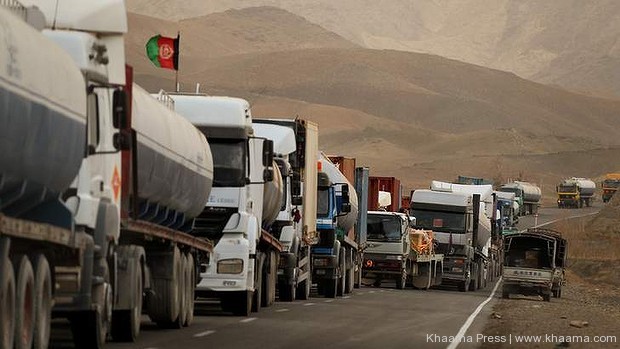Afghanistan has the potential to strengthen its economy while utilizing its human and natural resources, properly. But there is lack of a coherent and comprehensive strategy. Due to lack of a long-term and well-calculated policy, the government is unable to capture markets in South Asian and European countries. Local industries have not been supported—the way required. There are some barriers in front of the Afghan policymakers as well because a few neighboring countries are not ready to allow the war-hit country to explore new trade venues or increase commercial activities with the countries that are friendly and want to assist Afghanistan in its reconstruction. Reluctance of Pakistan to include India in the Afghanistan Pakistan Transit Trade Agreement (APTTA) and support Afghans in real sense is a good epitome in this regard.
Absence of result-oriented policies and cold-shoulder response of the neighbors have multiplied problems of Afghans. One of the major problems is joblessness. The unemployment rate has jumped to 40 percent. Data released by the Central Statistics Organization (CSO) shows 15 percent increase in unemployment as compared to the last year. According to CSO, the joblessness rate was 25 percent in 2014. Rapidly deteriorating law and order situation in the country, downsizing in different organizations and failure of the government to resolve problems faced by local industries are the major contributors.
There were numerous opportunities available on the ground that could have been cashed by the authorities. However, their incompetence and nepotism let the opportunities go uncashed besides eroding public trust. The shortcomings have resulted in large-scale immigration and capital flight. In the past several years, after fall of the Taliban’s regime, there was no conclusive strategy with the government to control the beast of unemployment. The young workforce that could have turned the situation had been left in lurch as they do not serve as integral part in economic policies, drafted by the concerned authorities.
Therefore, the problem is not scarcity of human resources or absence of opportunities but failure of the government to realize the importance of available workforce. Those sitting in the power corridors can neither strengthen the national economy nor improve security unless the potential was turned into prize.
The government is well-aware of the fact that there are loopholes in the policies it has drafted and maladministration does exist on large-scale. The most unfortunate fact is that yet the leaders are silent, though their silence serves no purpose.
If the policymakers want to bring the unemployment rate down then there should be no delay in formation of a commission to bring economists under a single roof and device a clear strategy. Without a comprehensive plan the government cannot manage the human resources and develop the country.
There is no doubt that Afghanistan serves as a gateway to energy-rich Central Asia and provides opportunity to the South Asian countries to feed their energy-starving industries, but unfortunately very little advantage has been taken from this strategically important position. Efforts should be accelerated to take advantage of this position.
To have a dignified job is a long-held dream of Afghans. The government could not materialize this dream through mere statements but there is need for concrete steps.
 Afghanistan Times Latest News and Analysis from Afghanistan and the Region
Afghanistan Times Latest News and Analysis from Afghanistan and the Region


